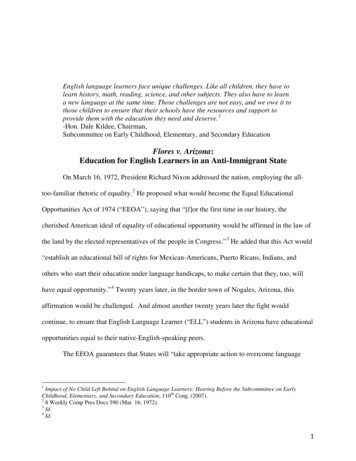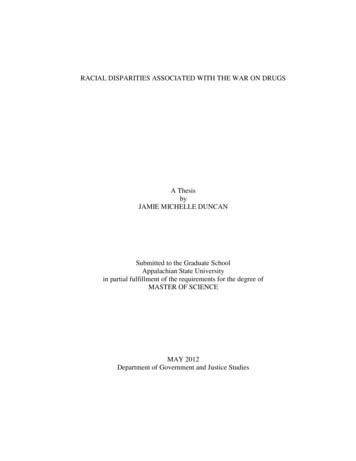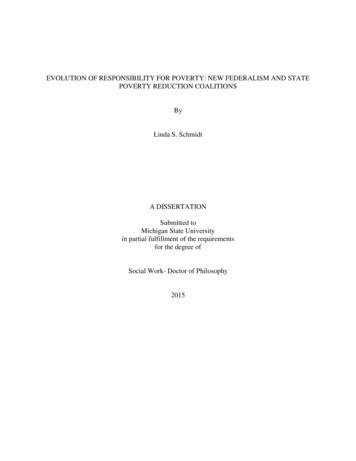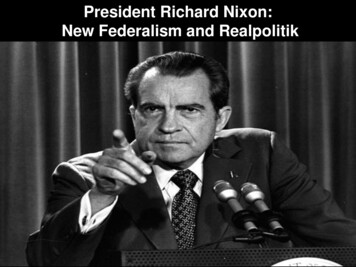
Transcription
President Richard Nixon:New Federalism and Realpolitik
E. America Enters World War II (1945Present)h. Describe and evaluate the political andsocial impact of the Vietnam War2.Changes at Homec. Identify the events and influential individualsof the civil rights, human rights, andcounterculture movements and assess theirimpactd. Evaluate the impact of changes in thenational economy on contemporary Americansociety
Richard Nixon, a Republican, lost the Election of 1960to JFK, a Democrat. Yet, Nixon won the Election of1968 by defeating Hubert Humphrey, a Democrat.
Republican Politics-Winning the election of 1968, Nixon wanted toreturn the nation to conservative rule and go againstthe liberal movements going on around the country.-He wanted to decrease the role of the federalgovernment. Nixon was concerned that governmentspending on social programs could damage theeconomy with high taxes.-In an approach Nixon called New Federalism, heattempted to give more power to local and stategovernments and reduce spending on varioussocial programs.
Nixon’s New Federalism-Nixon practiced revenue sharing. This meant thefederal government did not restrict states on how tospend money.-Yet, Nixon tried to set limits on welfare paymentsand make unemployed recipients take job trainingcourses as they looked for work. They had to acceptany “reasonable” work offered to them or lose theirbenefits.-Revenue sharing did come about. Yet, thesechanges to welfare and unemployment never passedthe Senate.
Nixon vs. The Democrats-To achieve support from the Democrat controlledCongress, Nixon had to give in and fund several socialprograms. Ironically, Social Security, Medicare, andMedicaid payments increased under his leadership,despite his desire to reduce government spending.-Nixon opposed the anti-war protest movement againstthe Vietnam War. He wanted to end the conflict, but didnot support the liberal protest movements that seemedto disregard government leadership.-He claimed there was a “silent majority” of middle classpeople who opposed the liberal “hippie” movementsand the changing morals of the new generation.
Nixon wanted to endthe war in Vietnam. Yet,he opposed the liberal“hippie” movementsthat protested againstgovernment leadership.
Nixon and Civil Rights-In Brown vs. Board of Education, the Supreme Courtruled racial segregation in schools was unconstitutional.This was a huge step to end the evil system ofsegregation.-In Swann vs. Charlotte-Mecklenburg Board ofEducation, it was ruled that busses could be used tobring African Americans to traditionally white schools tohelp end segregation. Nixon tried to oppose this ruling.-Many whites in the South did not support Civil Rights orthe Great Society of President Johnson. Nixon wanted toslow desegregation efforts and cater to these voters.Nixon tried to slow down integration in states likeMississippi.
Economics and Foreign Policy-During Nixon’s presidency, the economy experiencedstagnation, high inflation and high unemployment.Deficit spending and dependence on oil influenced thisoccurrence.-The Organization of Petroleum Exporting Countries(OPEC) stopped selling oil to the USA because theUSA supported Israel in the 1973 Yom Kippur war withEgypt. Many oil producing nations had Muslimpopulations that supported Egypt.-Nixon’s aid, Henry Kissinger, helped manage foreignaffairs. Kissinger practiced Realpolitik. This meant thatthe USA dealt with nations based on their power. Inother words, the USA could not refuse to work withlarge nations simply because they were Communist.
Organization of Petroleum Exporting CountriesSome members of(OPEC)OPEC, such as Iraq,wanted to see Egyptwin the Yom Kippurwar against Israel in1973. The USAsupported Israel. Asa result, OPECstopped selling oilto the USA, furtherdamaging thealready strugglingAmerican economy.This radicallyincreased gasprices when tradebegan again in 1974.
IsraelThe Yom Kippur War of 1973:Egypt and Syria vs. Israel
After WW II, when theCommunists took overChina, the USA reducedcooperation with thenation to protest theirgovernment system.Richard Nixon challengedthat approach. Heasserted that it was in thebest interest of the USAto trade with China, sinceChina was such a largenation. To the left is apicture of Nixon standingon The Great Wall ofChina.
President Richard Nixon shaking hands with theCommunist leader of China, Mao Zedong.
Realpolitik and China-For years, the USA had refused to trade withChina due to their Communist government. Yet,following Realpolitik, Nixon opened up a newrelationship with China in the early 1970s. By thelate 1970s, a formal relationship between Chinaand the USA was established.-In 1972, Nixon traveled to Moscow to initiate anew relationship with the Soviet Union and discussthe Strategic Arms Limitation Talks.-Nixon had great accomplishments in foreignpolicy. Yet, Vietnam still loomed as a disastrousconflict that Nixon would have to try and bring to aclose.
TheEnd
Copyright, USHistoryTeachers.comAll Rights Reserved.
Nixon vs. The Democrats -To achieve support from the Democrat controlled Congress, Nixon had to give in and fund several social programs. Ironically, Social Security, Medicare, and Medicaid payments increased under his leadership, despite his desire to reduce government spending. -Nixon opposed the anti-war protest movement against the Vietnam War.
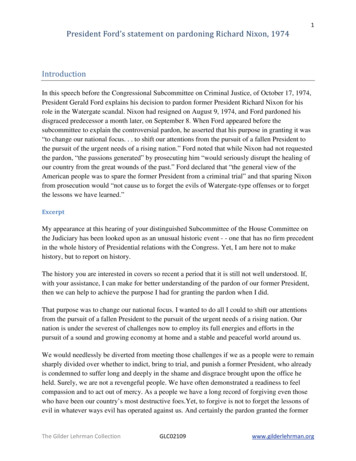
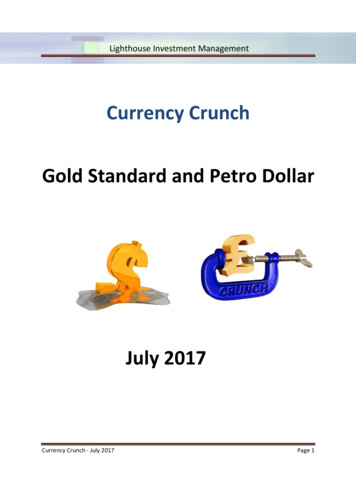
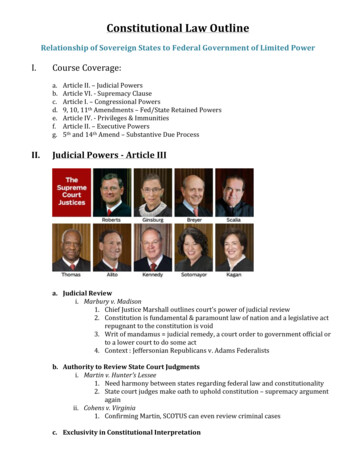
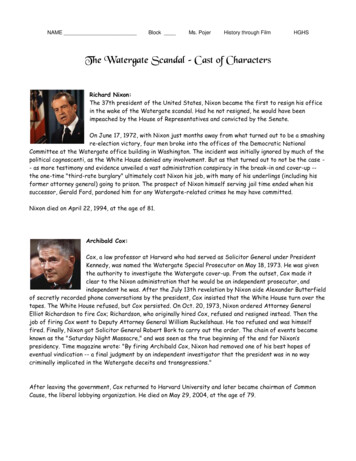


![WELCOME [ montclair.edu]](/img/31/commencement-program-2022.jpg)
